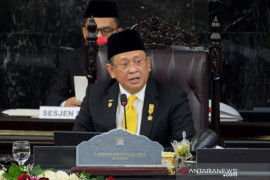"Factors such as economy, lifestyle and culture can be the cause of it," the minister said adding that the life expectancy of Indonesian is increasing from 68 years old to 70 years old and above.
In response to this issue, the minister called on the relatives and all sections of society to provide proper care for those neglected elderly.
Al Jufri said that if all sections of society took part in providing care for neglected elders the burden of their relatives, particularly those from economically weaker sections, could be alleviated.
According to the minister, the main asset to help them is the creation of social solidarity and mutual spirit of help among all sections of society.
He said that senior citizens should be entitled to care at home by family members or through social institutions.
To help ease off the burden of relatives in taking care of older people, the government provides an insurance for 26,500 older people in 33 provinces in Indonesia. Apart from it, the government also tries to improve the quality of social workers and conduct house reparation program for older people.
It is predicted that the number of senior citizens will reach 40 million in 2025 and will swell to 71.6 million by 2050.
However, an expert has predicted that the period of the demographic boom between 2020 and 2030 would be a bonus for Indonesia.
"The demographic bonus is that Indonesia will have a large number of people at a productive work age," Hendri Saparini of the Advisory Group on Economic Industry and Trade (Econit) said.
Based on Indonesia`s current demographic structure, of the total population of 240 million, about 57 percent people are between 15 and 60 years in age.
"But Indonesia needs to initiate appropriate and immediate policies to take advantage of the demographic bonus potential," Saparini said.
"The government has to create jobs for them in order to achieve an extraordinary leap in economic growth during the demographic bonus period," she asserted.
Saparini added that the government should take into account a number of working and economic conditions while drafting polices so that the demographic bonus would be advantageous to the country.
The government has been aware of the country`s big population but its per capita income is small. However, Indonesia`s per capita income is relatively higher than that of India which has the second biggest population in the world after China.
"However, seeing the composition of capital in the country which is controlled by foreigners, Indonesia`s per capita income will be lower if the foreign capital is excluded," she noted.
Reporting by Desi Purnamawati
Translating and Editing by Amie Fenia Arimbi
Editor: Jafar M Sidik
Copyright © ANTARA 2013












